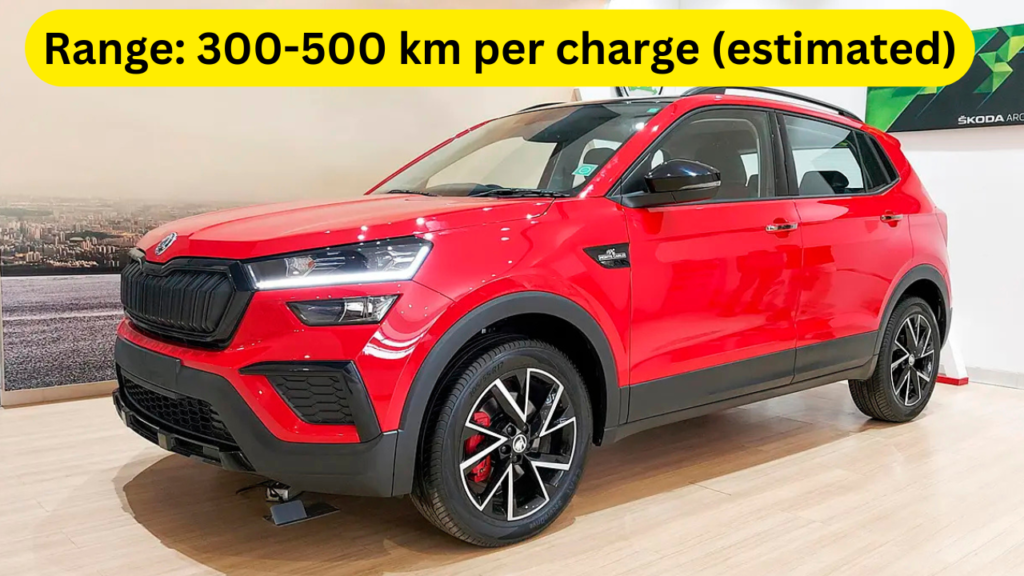Skoda VW Turns to JSW and Tata Motors: Skoda Auto Volkswagen India Pvt Ltd (SAVWIPL) is actively seeking a strategic partner to bolster its presence in the Indian automotive market, particularly in the electric vehicle (EV) segment. After an inconclusive joint venture (JV) proposal with Mahindra Auto, SAVWIPL has shifted its focus to JSW MG Motor and Tata Motors for a potential EV licensing deal. This move comes as the company aims to comply with India’s stringent CAFE III fuel efficiency norms, set to take effect by FY28. By partnering with established EV manufacturers, Skoda VW hopes to reduce development costs, save time, and accelerate its entry into the rapidly growing EV market.
Currently, SAVWIPL’s portfolio includes vehicles like the Skoda Kodiaq, Kushaq, Slavia, and Volkswagen’s Taigun and Virtus, which are part of the India 2.0 and India 2.5 strategies. However, these models are not segment leaders and have struggled to generate significant volumes in the highly competitive Indian market. To address this, Skoda VW is exploring the possibility of licensing an EV platform from a leading manufacturer, such as JSW MG Motor or Tata Motors, instead of developing one from scratch. This approach is expected to save the company approximately USD 1 billion (Rs 8,714 crore) and allow it to launch an EV much faster.
The potential partnership with JSW MG Motor or Tata Motors aligns with SAVWIPL’s goal of improving its CAFE ratings by reducing carbon emissions and enhancing fuel efficiency across its portfolio. JSW MG Motor, a joint venture between JSW Group and China’s SAIC Motor, is already a key player in India’s EV space with models like the MG ZS EV. Tata Motors, on the other hand, dominates the Indian EV market with its Nexon EV and Tigor EV. By leveraging their expertise and platforms, Skoda VW aims to strengthen its position in the Indian market and meet the growing demand for electric vehicles.
Also read: 2025 Rolls-Royce Cullinan Black Badge Series II
Specifications and Features
Specifications
Here’s a detailed table summarizing the expected specifications of Skoda VW’s upcoming EV based on potential partnerships:
| Feature | Details |
|---|---|
| Platform | Licensed from JSW MG Motor or Tata Motors |
| Battery Capacity | 40-60 kWh (expected) |
| Range | 300-500 km per charge (estimated) |
| Charging Time | 0-80% in 45-60 minutes (DC fast charging) |
| Motor Power | 100-150 kW (expected) |
| Transmission | Single-speed automatic |
| Seating Capacity | 5 |
| Infotainment System | 10-inch touchscreen with Android Auto and Apple CarPlay |
| Safety Features | 6 airbags, ABS, EBD, ESC, rear parking camera, and ADAS (optional) |
| Price | Rs 20-25 lakh (estimated) |
| Launch Date | 2025 (expected) |
Performance and Design
Performance
The upcoming Skoda VW EV is expected to deliver a balanced performance, catering to both urban and highway driving needs. With a motor power output of 100-150 kW, the vehicle is likely to offer quick acceleration and a top speed of around 150 km/h. The battery capacity, ranging between 40-60 kWh, should provide a driving range of 300-500 km on a single charge, making it suitable for long-distance travel. Fast charging capabilities will ensure that the vehicle can be charged to 80% in under an hour, enhancing convenience for users.
Design
Skoda VW is known for its premium and elegant design language, and the upcoming EV is expected to follow suit. The vehicle will likely feature a sleek and aerodynamic exterior, with LED headlights, a bold grille, and stylish alloy wheels. The interior is expected to be spacious and luxurious, with premium materials, a panoramic sunroof, and advanced infotainment features. The design will also focus on sustainability, incorporating eco-friendly materials and energy-efficient systems.
Price and Launch Details
Price
The Skoda VW EV is expected to be priced competitively in the range of Rs 20-25 lakh, positioning it as a premium offering in the Indian market. This pricing strategy will allow the company to compete with popular EVs like the Hyundai Kona Electric and MG ZS EV while offering superior features and performance.

Launch Date
The official launch date for the Skoda VW EV is yet to be confirmed, but industry experts predict it could hit the market by 2025. The timeline will depend on the finalization of the licensing agreement and the development of the vehicle based on the shared platform.
Skoda VW Turns to JSW and Tata Motors Conclusion
Skoda Auto Volkswagen’s strategic pivot towards JSW MG Motor and Tata Motors for a potential EV licensing deal underscores the company’s commitment to adapting to the evolving Indian automotive market. After an inconclusive joint venture proposal with Mahindra Auto, this move highlights Skoda VW’s urgency to establish a strong foothold in the electric vehicle segment. By leveraging the expertise and platforms of established players, SAVWIPL aims to reduce development costs, save time, and accelerate its entry into the competitive EV market.
The upcoming Skoda VW EV is expected to be a game-changer, offering a blend of performance, design, and advanced features. With a projected range of 300-500 km, fast charging capabilities, and a premium interior, the vehicle is poised to attract environmentally conscious buyers and tech-savvy consumers. The competitive pricing, estimated between Rs 20-25 lakh, will further enhance its appeal in the premium EV segment.
This partnership also aligns with India’s stringent CAFE III fuel efficiency norms, which are set to take effect by FY28. By incorporating an electric vehicle into its portfolio, Skoda VW can significantly improve its CAFE ratings, reduce carbon emissions, and enhance the overall fuel efficiency of its lineup. This strategic move not only benefits the company but also contributes to India’s broader goal of transitioning to sustainable mobility.
The collaboration with JSW MG Motor or Tata Motors could set a new benchmark for the automotive industry, encouraging other manufacturers to adopt similar strategies. It reflects the growing importance of partnerships and collaborations in driving innovation and growth in the EV space. As the Indian market continues to evolve, such alliances will play a crucial role in shaping the future of mobility.
In conclusion, Skoda VW’s entry into the Indian EV market is a promising development that combines global expertise with local partnerships. By focusing on sustainability, performance, and affordability, the company is well-positioned to make a significant impact and cater to the growing demand for electric vehicles in India.
Skoda VW Turns to JSW and Tata Motors FAQs
1. Why is Skoda VW exploring partnerships with JSW MG Motor and Tata Motors?
Skoda VW is exploring partnerships with JSW MG Motor and Tata Motors to license their EV platforms, which will help the company save time and costs associated with developing an electric vehicle from scratch. This strategy allows Skoda VW to accelerate its entry into the Indian EV market and comply with stringent CAFE III fuel efficiency norms.
2. What are the expected features of the Skoda VW EV?
The Skoda VW EV is expected to feature a 40-60 kWh battery, offering a range of 300-500 km per charge. It will likely include advanced features such as a 10-inch touchscreen infotainment system, Android Auto, Apple CarPlay, fast charging capabilities, and safety features like 6 airbags, ABS, EBD, and ADAS.
3. When is the Skoda VW EV expected to launch in India?
The Skoda VW EV is expected to launch in India by 2025. The timeline depends on the finalization of the licensing agreement with JSW MG Motor or Tata Motors and the development of the vehicle based on the shared platform.
4. What will be the price range of the Skoda VW EV?
The Skoda VW EV is expected to be priced between Rs 20-25 lakh, positioning it as a premium offering in the Indian EV market. This competitive pricing will help it rival popular models like the Hyundai Kona Electric and MG ZS EV.
5. How will this partnership benefit Skoda VW in the long term?
The partnership will enable Skoda VW to reduce development costs, save time, and leverage the expertise of established EV manufacturers like JSW MG Motor and Tata Motors. This will help the company strengthen its position in the Indian market, comply with regulatory norms, and cater to the growing demand for electric vehicles. Additionally, it will enhance Skoda VW’s brand image as a forward-thinking and sustainable automaker.


